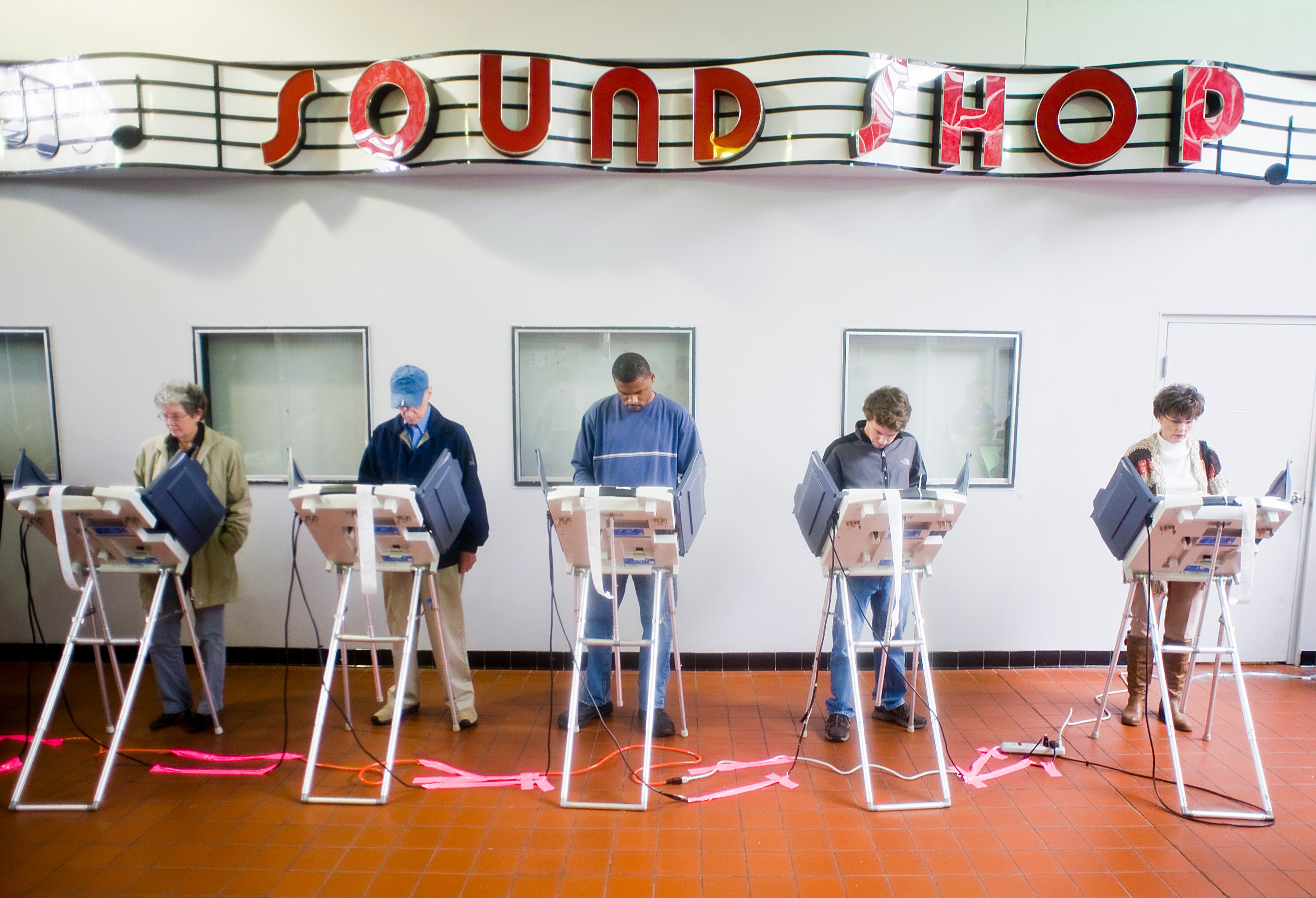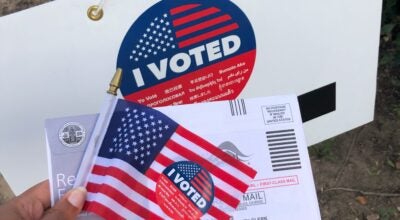How secure is your vote? Encryption, layers of security prevent election issues in Lafayette County
Published 10:49 am Tuesday, October 4, 2016

- Voters cast their ballots at the polling station at the Oxford Mall in Oxford, Miss. on Tuesday, November 6, 2012. (Bruce Newman)
By John Cooper Lawton
Special to the Oxford EAGLE
Ballot security has been a hot topic leading up to the 2016 presidential election, due at least in part to last summer’s Russian cyberattack that targeted Democratic officials, along with repeated concerns from Republican candidate Donald Trump regarding the election being rigged.
While some might assume small counties could be more vulnerable to hackers during a presidential election, Circuit Clerk Baretta Mosely says Lafayette County elections are at the forefront of security.
The circuit clerk’s office and Lafayette County Election Commission have taken several steps to ensure this year’s presidential election is more secure than ever.
Encryption process
Using a system of checks and balances, such as encryptions on polling devices and training bailiffs to watch each voter cast his or her vote, Mosely said hacking into the county’s election results was nearly impossible.
“There ain’t no hacking going on around here,” Mosely said.
Mosely, a Democrat who had 24 years of experience in the circuit clerk’s office before moving into the top spot, said she scoffs at allegations that Lafayette County would be susceptible to hacks on election day.
The polling machines are encrypted on many levels and are not connected to the internet. Any attempts to hack the system would have to be done on the physical machine itself as there is no access to it or any of its information online.
Using the industry standard AccuVote TSX voting machine, the secretary of state’s office sends Lafayette County all the encryptions before the election.
All of the machines’ memory cards and voter access cards are sent through secured mail to be encrypted.
“If somebody, say, for instance, took a voter access card, walked out of there thinking they could vote (with) it again, no,” Mosely said. “No, because the encryptions are updated every election.”
Machine maintenance, security measures
When the machines are not in use, all 106 of them are kept in a climate-controlled storage unit below the county courthouse, which is accessed only with a master key and key fob.
Twenty-four-hour security cameras add another layer of protection. No one is allowed access to the machines unless they are being pulled out for testing, routine maintenance or an election.
The machines go through intense testing before each election. The encryptions are loaded into the machines, and everything has to be running correctly.
The election commission is in charge of testing the devices.
Election commission chairman Nell Green said testing typically happens a week before the election and is open to the public.
“I fully believe in the election process,” Green said. “Some people’s records aren’t as secure as ours.”
After testing is complete, the election commission is charged with training all volunteers to use the machines. Green said there are 133 volunteers for this year’s election and 28 of them are specifically trained to deal with any issues that could arise.
“After all the testing that we go through to make sure that everything is right on it, I’m comfortable with us going forward,” Mosely said. “Because once we get the database and upload it into the server, how are you going to hack something you can’t access?”
These machines are now 10 years old, Mosely said. Occasionally, they will run into technical issues with the machines. Even then, Mosely said there’s not a security issue since all the information is backed up and there are people in each precinct to assist with technical problems.
“I’ve never seen any of the information lost,” Mosely said.
After Election Day, the database containing the results is stored locally on a server in the circuit clerk’s office. All of the information is uploaded to three separate CDs: One stays in a bank safe-deposit box, one stays at the courthouse and one is sent securely to the secretary of state’s office.
Ian Calamari, a junior computer science major at the University of Mississippi, said he believes the security of polling machines is critical, noting it’s usually easier to attack than it is to defend.
“When it comes to potentially hacking polling machines, as it has been true for history and all democratic systems, whoever counts the ballots controls who wins,” Calamari said. “Even if the system is secure against non-threats, it’s still important to be vigilant.”
Issues with absentee, provisional ballots
Absentee and provisional ballots are where issues typically arise, Mosely said.
As of July, there are 31,576 registered voters in Lafayette County. Around 2,500 absentee ballots are typically cast in an election, Mosely said.
There have been problems in previous years where two people with the same name caused confusion for the poll workers, but according to Mosely, this is sorted out with a maiden or middle name.
“I think we are at the top of the pyramid as far as elections are concerned,” Mosely said. “Any problem that I’ve seen in the state of Mississippi have not been with the machines. They’ve all been with the absentees. Maybe we need to look at tightening the reigns on stuff like that.”





